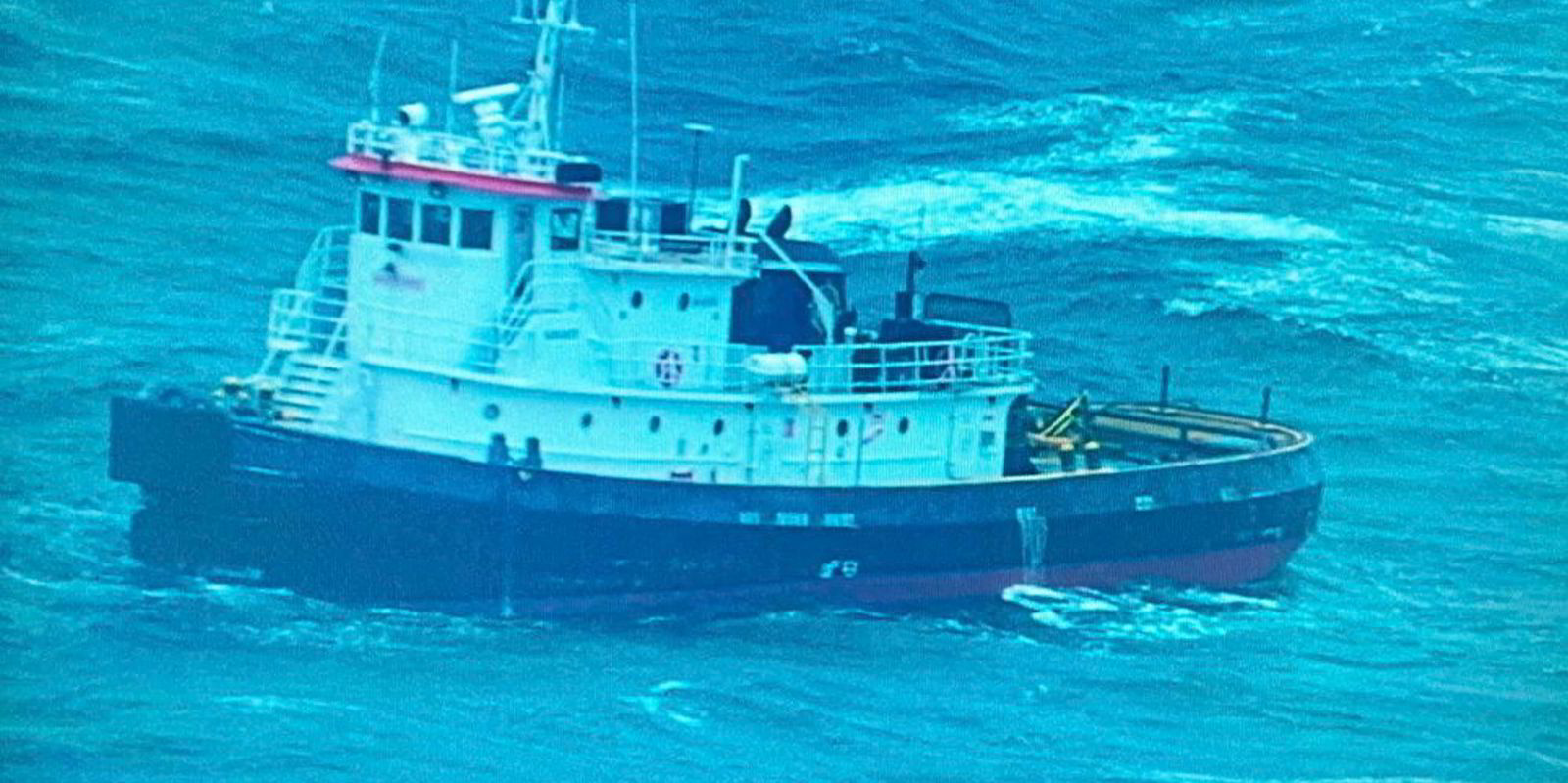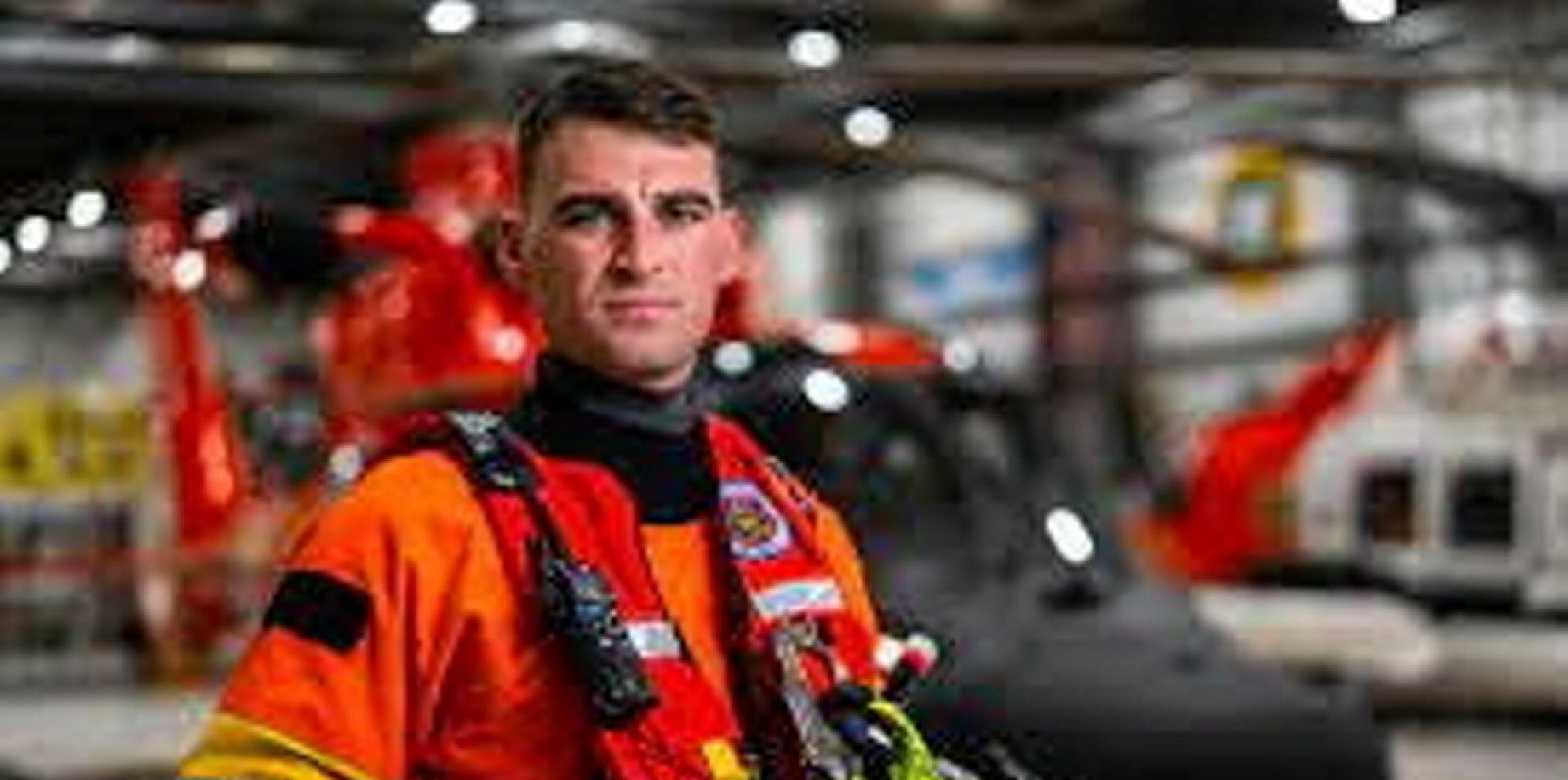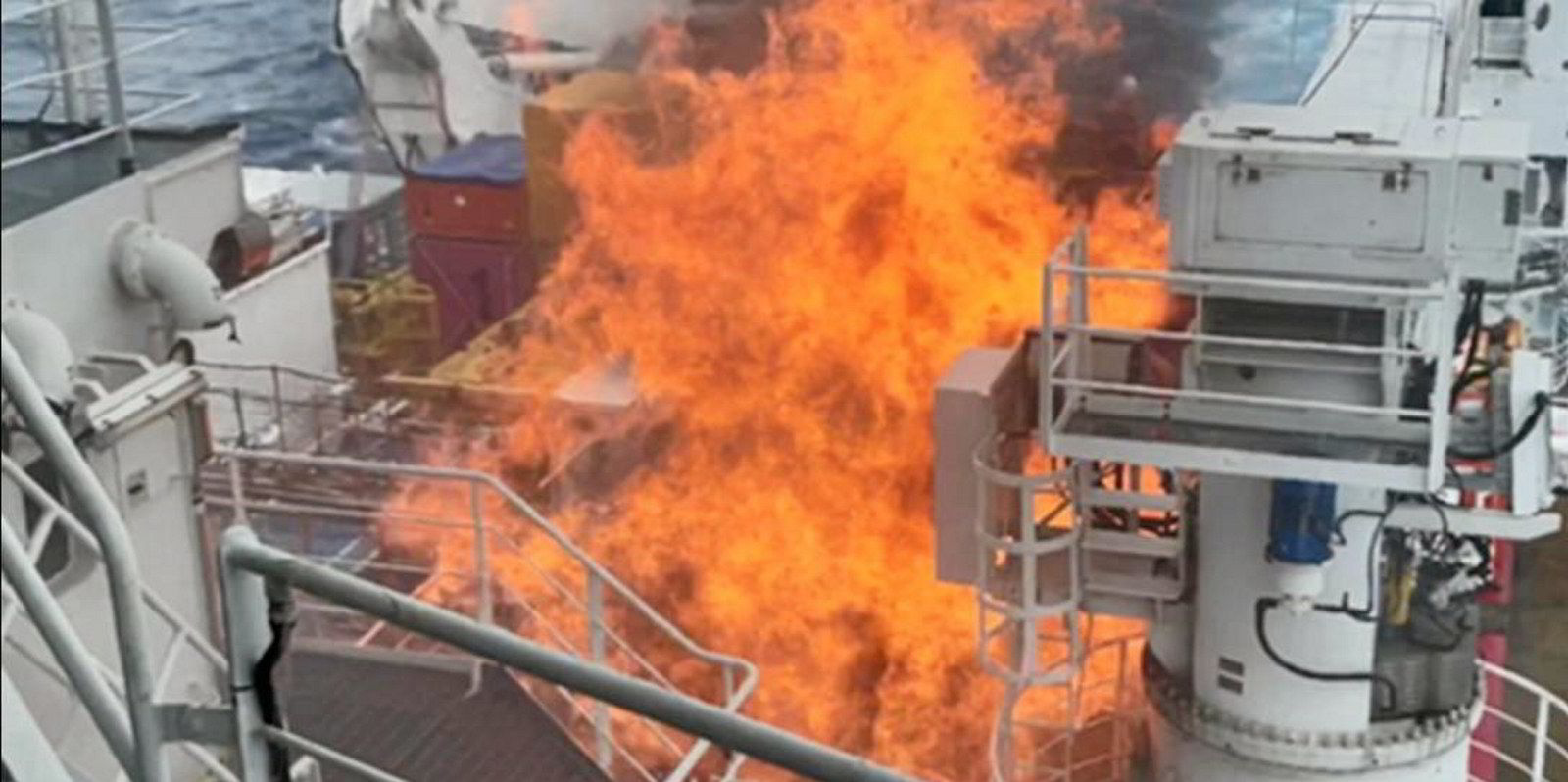A US Coast Guard specialist honoured for his role in the rescue of seven people has told of his “easy” decision to remain on a stricken tugboat when a first rescue helicopter left without him.
After the first three crew members were winched to safety, Caleb Halle, 28, remained on board the tugboat Legacy when the first helicopter left because of a shortage of space and fuel.
Halle instead shepherded the final group to the pilot’s house and tried to raise the second helicopter via radio before coordinating the rescue from the deck.
“That was a really easy decision for me. I hate leaving survivors by themselves,” he told TradeWinds after receiving the International Maritime Organization’s top bravery award.
“So for me to leave — I could have — but in my mind, I just thought: ‘Why in the world would I do that?’”
The Legacy had been towing a barge off the coast of Maryland, US, in January when the lines snapped and fouled the tug’s propellers leaving it at the mercy of the turbulent weather.
Halle was the first at the scene and was winched down to the deck of the tug by a flight mechanic on his first major rescue.
He helped three of the crew members into the basket before retreating to the pilot’s house for a second, larger helicopter.
As darkness closed in, Halle helped a fellow rescue swimmer descend from the second helicopter and together they hoisted the last four seafarers from the violently pitching deck.
He was hooking himself to the hoist with his colleague to be lifted to safety when the vessel violently pitched throwing them into the waters just feet from the propellers of the tugboat, according to the citation.

“I couldn’t tell what actually happened if a big wave came and dropped out underneath us, or if the helicopter moved significantly, or whatever it was,” he said. “We got kind of plucked off the back and landed in the water.”
Halle’s survival suit was damaged during the operation and started filling with water.
“We were grabbing onto each other’s vests to say ‘are you okay?’ And then we gave a thumbs up and they pulled us up.”
Halle received his silver medal from IMO secretary general Kitack Lim at a ceremony at the organisation’s headquarters in London on Monday.
The judging panel said Halle had remained collected despite the extreme conditions, and demonstrated exceptional bravery and determination.
But Halle shrugged off the tag — saying he was just doing the job he was trained to do.
“What’s really impressive to me is when people don’t have the training or they don’t have the experience, and they get put in a scary situation, they perform well and people’s lives are saved,” he said.
“And for me, that was the story of my flight mechanic.”
Read more
- Confirmed death toll rises from Turkish Black Sea shipwreck
- One seafarer dead and 11 missing after cargo ship sinks in Black Sea storm
- Fuel being removed from Russian tanker five days after grounding
- ‘Miracle’ return for seafarers after navigating nine-month ordeal with grounded tanker
- Bulker master injured after ship boarded in Strait of Malacca




